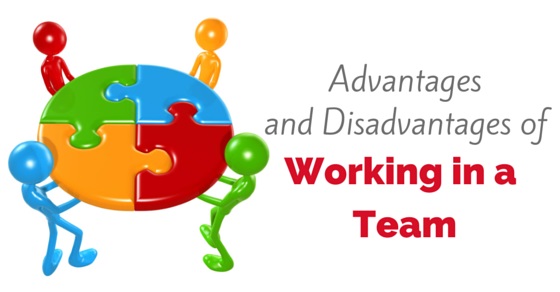The Benefits of Working as a Team
Working as a team is an essential aspect of any successful organization. In today’s highly competitive business landscape, the ability to collaborate effectively can make a significant difference in achieving goals and driving innovation. In this article, we will explore the numerous benefits of working as a team and how it can positively impact both individuals and the overall success of a company.
Enhanced Creativity and Innovation
When individuals with diverse backgrounds, skills, and perspectives come together, it creates a fertile ground for creativity and innovation. Teamwork allows for the exchange of ideas, brainstorming sessions, and the blending of different expertise, which can lead to unique and breakthrough solutions. By leveraging the collective intelligence of a team, companies can stay ahead of the competition and continuously improve their products or services.
Improved Problem-Solving
Working as a team enables a broader range of problem-solving approaches. Each team member brings their own set of skills and experiences, which can be invaluable when tackling complex challenges. By pooling together different perspectives, teams can analyze problems from various angles, identify potential obstacles, and develop comprehensive solutions. This collaborative problem-solving approach often leads to more effective and efficient outcomes.
Increased Productivity
Teamwork fosters a sense of accountability and motivation among team members, which can significantly boost productivity. When individuals work together towards a common goal, they can share the workload, support each other, and leverage each other’s strengths. This division of tasks and responsibilities allows for a more efficient workflow, enabling the team to accomplish more in less time. Additionally, the collective effort of a team can help overcome individual limitations and ensure tasks are completed to a high standard.
Enhanced Communication and Collaboration
Effective communication is at the core of successful teamwork. By working together, team members develop strong communication skills, both verbal and written, which are essential in any professional setting. Regular team meetings, discussions, and feedback sessions promote transparency and ensure everyone is aligned with the team’s objectives. Collaboration tools and platforms further facilitate seamless communication, enabling team members to share information, updates, and ideas in real time.
Improved Employee Satisfaction and Retention
Working as part of a team can significantly impact employee satisfaction and retention rates. When individuals feel valued and supported within a team, they are more likely to be engaged and motivated in their work. The sense of belonging and camaraderie that comes from being part of a team fosters a positive work environment. Moreover, teamwork allows for professional development through knowledge-sharing and skill-building opportunities, which can further enhance job satisfaction and contribute to long-term employee retention.

In conclusion, the benefits of working as a team are undeniable. From enhanced creativity and innovation to improved problem-solving and increased productivity, teamwork plays a vital role in driving success in today’s dynamic business world. By fostering effective communication, collaboration, and a supportive work environment, organizations can harness the power of teamwork and unlock the full potential of their teams. Embracing teamwork is not only beneficial for individuals but also essential for the overall growth and prosperity of any organization.
Frequently Asked Questions
1. How does working as a team benefit individuals?
Working as a team promotes collaboration and enhances individual skills by allowing team members to learn from each other’s strengths and experiences.
2. What are the advantages of teamwork in the workplace?
Teamwork in the workplace fosters creativity, increases productivity, improves problem-solving abilities, and boosts employee morale.
3. How does working in a team contribute to personal growth?
Working in a team environment helps individuals develop better communication skills, build trust, and learn to manage conflicts effectively, which all contribute to personal growth.
4. What impact does teamwork have on achieving goals?
Teamwork facilitates the achievement of goals by pooling diverse talents, sharing responsibilities, and leveraging collective efforts toward a common objective.
5. How does teamwork enhance innovation and creativity?
When individuals collaborate in a team, they bring different perspectives and ideas, leading to increased innovation, creativity, and the ability to find unique solutions to problems.
6. What role does teamwork play in employee satisfaction?
Working as a team promotes a sense of belonging, fosters positive relationships, and creates a supportive work environment, ultimately leading to higher employee satisfaction.
7. How does teamwork improve decision-making processes?
Teamwork allows for diverse viewpoints and expertise to be considered during decision-making, leading to more well-rounded and informed decisions.
8. What are the benefits of teamwork for organizations?
Organizations that prioritize teamwork experience improved productivity, higher employee retention rates, enhanced problem-solving capabilities, and a stronger overall company culture.
9. How does teamwork contribute to a positive work-life balance?
By distributing workloads and responsibilities among team members, teamwork helps reduce individual stress levels and promotes a healthier work-life balance.
10. What skills can individuals develop through teamwork?
Through teamwork, individuals can develop skills such as effective communication, active listening, adaptability, collaboration, and conflict resolution, which are valuable in both personal and professional contexts.




